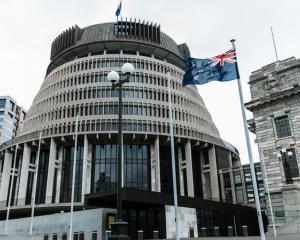
The enthusiastic backing for vaping as a smoking cessation tool is one example. From the start, it was clear that little was known about the long-term effects of the practice.
Now, we are burdened with further nicotine addiction, a youth vaping epidemic and the still-to-be-understood long-term consequences.
While smoking rates continued to fall, they were doing so anyway.

We are amid another possible revision of official attitudes — for gender-issue puberty blockers.
It always seemed like a potentially hazardous practice that might partly be driven by ideology. Blocking puberty had to be a major developmental intervention.
Their use in New Zealand climbed rapidly: 50 individuals were on treatments in 2011, rising to 400 in 2022.
New Zealand has been prescribing at much higher rates than Denmark, England and the Netherlands, where the practice began in the 1990s.
Medsafe approves the blockers for precocious puberty but gender-dysphoria use is "off-label". This dysphoria is the distress that can happen when gender identity differs from the sex assigned at birth.
The Ministry of Health published an evidence brief and position paper last November. This said evidence supporting effectiveness and safety was limited and "poor quality". Reversibility was also questioned.
The paper sets out a more precautionary approach where prescribing can only be initiated by clinicians experienced in providing gender-affirming care as part of a team offering a full range of support.
The ministry is now consulting the public and those affected until the end of this month. The government will be considering extra safeguards.
A fear is that the issues will be politicised. Decisions should be based on dispassionate expert advice.
Those with conservative gender attitudes will naturally be inclined one way. Strident views from this quarter will only increase the harm and pressures on gender dysphoric children and their families.
Those who are progressive will default in the opposite direction and cry "injustice".
There is a danger the issue becomes aligned with this country’s equivalent of the "culture wars".
There is no way Civis has the qualifications to do Civis’ "own research" on the medical issues.
Civis did, though, see sense in the explanations from University of Otago epidemiologist Charlotte Paul in a recent article.
She said that while gender clinicians had said they agreed to a more cautious approach, they were severely minimising the problems. The evidence brief was also too narrow. Other countries had banned routine use and were developing guidelines for other types of care.
Prof Paul said gender clinicians had used their clinical experience to infer that puberty-blocking hormones for gender dysphoria were safe and effective. Although clinical experience mattered, there were plenty of examples where such experience had proved highly misleading, especially where clinicians strongly believed in a treatment’s effectiveness.
Prof Paul referred to an examination of international care by Auckland University’s Paul Hofman and colleagues. They concluded that guidelines were progressively shaped by a "rights-based" approach that removed previous safeguards.
Prof Paul said the rights-based rather than the evidence-based best-interests approach had been at the forefront in New Zealand.
She also said increasing numbers of young people were de-transitioning and expressing regret. Many blamed the medical profession that unquestionably affirmed them.
England and Wales changed their trajectory last year after a major review led by a respected paediatrician. It would appear New Zealand needs to go at least as far.
It is easy to see how the "rights-based" approach gains momentum and feeds on itself, especially given the way trans and gender dysphoric people are poorly treated by society.
But let’s try to get left and right ideology and "rights" out of this decision-making. Let it be based on the long-term safety and welfare of children and adolescents.












